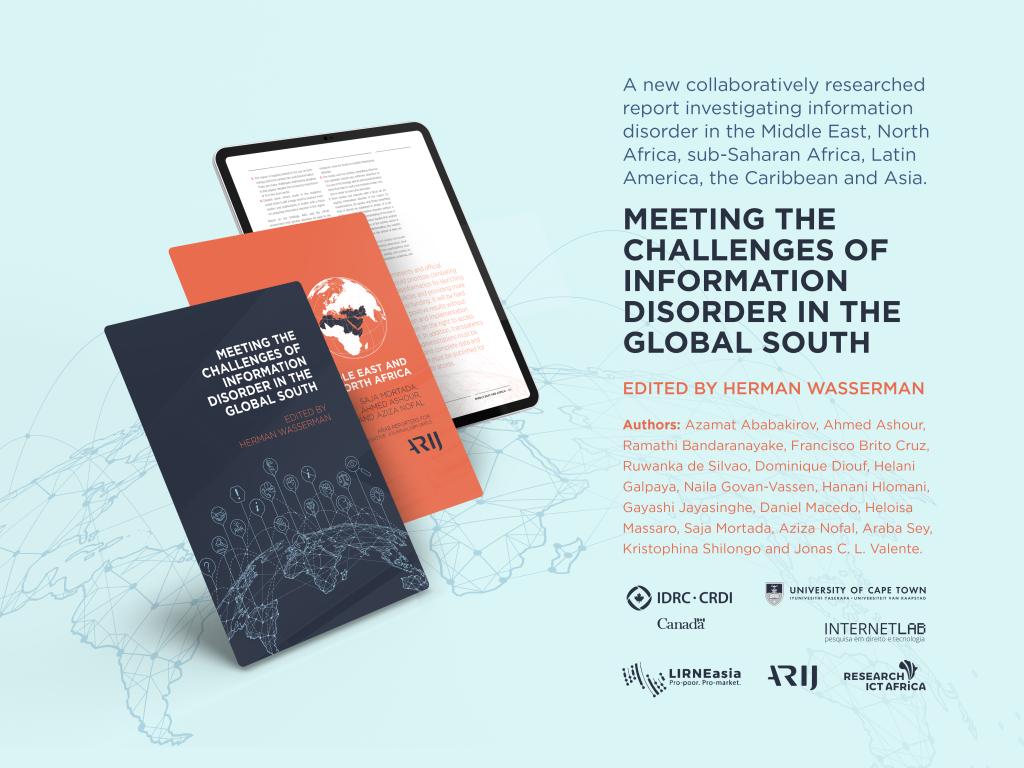Groundbreaking study led by UCT’s Prof Herman Wasserman maps fight against information disorder in Global South

From teams of independent fact-checkers in Latin America, to policy makers in Africa and the Middle East, to media education specialists in Asia, organizations and movements in lower- and middle-income countries are rising to combat the problem of so-called “fake news.”
Meeting the Challenges of Information Disorder in the Global South explores the methods people are using to meet the challenges they face, with special attention on how the Covid-19 pandemic has made the problem worse. It is a ground-breaking study, bringing researchers from across the Global South together in a collaborative project to scope and map efforts at countering misinformation.
The manifestation of the information disorder around the world has resulted in a burgeoning but complex research landscape that includes analysis of issues ranging from election manipulation and populist politics to questions of media trust and implications for journalism. “This is truly novel research, coming along at a really important time, when democracies are struggling with how to confront the complex challenges of how misinformation is influencing our digital public sphere,” says Caroline Ford, the director of IDRC’s Democratic and Inclusive Governance team.
The information disorder is being generated by the increasing prevalence of misinformation, disinformation and malinformation in the public sphere and in social media, defined in the following ways:
• Misinformation is false information that is shared, but with no harm intended.
• Disinformation is false information that is knowingly shared to mislead or cause harm.
• Malinformation is when information, factual or false, is shared to cause harm, often by moving information designed to stay private into the public sphere.
All misinformation can be harmful, but because of the intent and how it manifests, malinformation is a particularly serious problem for the direct and intentional harmful impact it can have on a person, organization, or country. It includes actions such as online harassment, hateful speech, non-consensual sharing of intimate images, the creation of photographic, video and audio hoaxes (a.k.a. deepfakes), email leaks, or sharing personal location information (a.k.a. doxxing).
Even though information disorder is a widespread problem in countries in the Global South, research is still dominated by theories and case studies drawn from recent experiences in Global North contexts. This study aims to meet some of those gaps in understanding and find areas where further research is needed.
According to Herman Wasserman from the University of Cape Town who led the study, “Access to quality information is vital to enable citizens to participate in democratic processes. This is especially important in the Global South, where many democracies are fragile, access to digital resources are unevenly distributed and independent media are often under pressure. In these contexts, information disorder can further undermine democratic governance and civic agency. This study helps us understand how civil society organizations in the Global South can help counter information disorder and support reliable and trustworthy information.”
The report is the outcome of a project funded by IDRC and led by Professor Wasserman, working collaboratively with teams from Research ICT Africa (covering sub-Saharan Africa), InternetLab (covering Latin America and the Caribbean), LIRNEasia (covering Asia) and Arab Reporters for Investigative Journalism (covering the Middle East and North Africa).
The full report can be read here: Meeting the challenges of information disorder in the Global South (dspacedirect.org)
